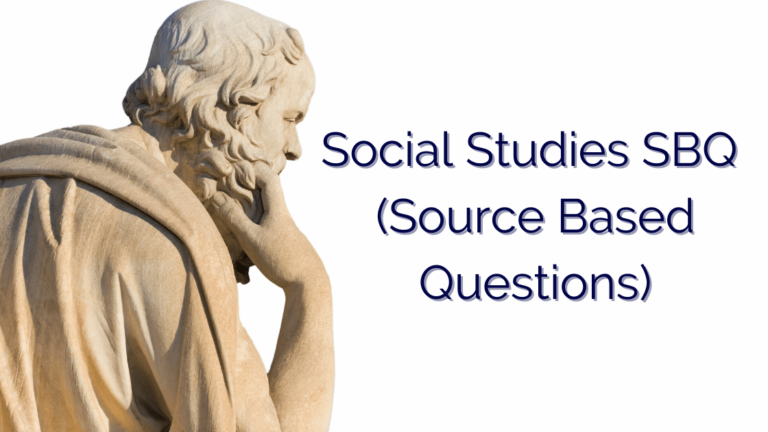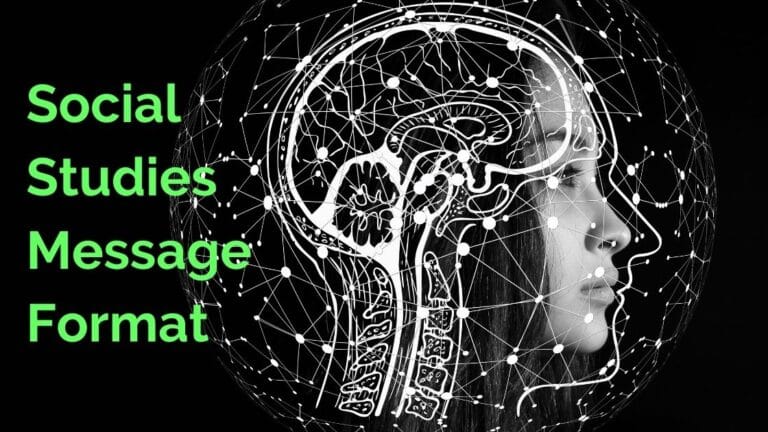Hitler’s Rule: 4 SEQ Examples
After learning about how Hitler came to power, we now move on to how he ruled Germany and how his policies impacted the people of Germany. For easy download of the pdf, you can click on the download below.
I would like to emphasise again that these essays are not for memorisation but meant as a reference on how these questions should be answered.
1. ‘Hitler should be blamed for causing Germans hardship.’ How far do you agree with this statement?
(P) Hitler should not be blamed for causing Germans hardship as he brought stability to the country.
(E) For example, the Weimar government proved itself unstable and incapable of handling unrest that swept the streets before Hitler took power. However, Hitler and his SA managed to stop Communist protests and restore law and order to Germany due to his party’s organisation. His leadership abilities also created a strongman figure that set a clear direction for Germany.
(E) As he stabilised a formerly chaotic period, Hitler did not bring Germans hardship as he was able to bring stability and order to Germans’ lives, allowing Germans to go about their businesses safely and focus on economic recovery.
(L) Thus, Hitler did not cause Germans hardship as he improved their lives instead.
(P) Hitler also should not be blamed for causing Germans hardship as he solved unemployment in Germany.
(E) For example, Germany was suffering from high unemployment rates and severe debts from the Treaty of Versailles. Hitler solved this by initiating public works programmes to build roads, motorways and public buildings, providing many jobs.
(E) Hitler did not give Germans hardship as he managed to raise their standard of living by providing jobs and sufficient income for the unemployed Germans.
(L) Thus, Hitler did not bring Germans hardship, for he alleviated their problems instead.
(P) However, Hitler could be blamed for bringing Germans hardship as he ruled by instilling fear and demanding obedience.
(E) For example, the Gestapo, or Nazi secret police, were widely feared by Germans as they had the power to detain people without trial. The Gestapo used torture, murder, and arrest to force Germans to be loyal to Hitler.
(E) The presence of the Gestapo created an atmosphere of fear and anxiety throughout Hitler’s rule, adding to the stress of living in a country just recovering from an economic crisis.
(L) Thus, Hitler should be blamed for bringing Germans hardship.
(P) Hitler should also be blamed for bringing Germans hardship as he persecuted Jews and other minority groups.
(E) For example, Hitler subjected Jews and other minorities to the Nuremberg Laws, which excluded Jews and other minorities from society. They no longer qualified as German citizens and sent to concentration or death camps.
(E) This means that Hitler should be blamed for giving Germans hardship as he dedicated vast amounts of resources into persecuting the innocent. It not only wasted resources but reduced the German workforce drastically.
(L) Thus, Hitler should be blamed for causing Germans hardship.
(J) In conclusion, Hitler should be blamed for bringing Germans hardship. It has to be acknowledged that Hitler did bring about some positive impacts to Germany, such as restoring national pride when he remilitarised the country and when he solved unemployment.
However, this progress came at a high cost as Hitler also mercilessly killed a significant portion of the German population, created fear and tensions that added on to existing hardships and eventually led Germany into a deadly war. Thus, Hitler should be blamed for giving Germans hardship.
2. ‘Nazi rule in Germany brought about an improvement in the lives of the German people.’ How far do you agree with this statement? Explain your answer.
(P) Hitler should not be blamed for causing Germans hardship as he brought stability to the country.
(E) For example, the Weimar government proved itself unstable and incapable of handling unrest that swept the streets before Hitler took power. However, Hitler and his SA managed to stop Communist protests and restore law and order to Germany due to his party’s organisation. His leadership abilities also created a strongman figure that set a clear direction for Germany.
(E) Hitler did not bring Germans hardship as he could bring stability and order to Germans’ lives, allowing Germans to go about their businesses safely and focus on economic recovery.
(L) Thus, Hitler did not cause Germans hardship as he improved their lives instead.
(E) Hitler should not be blamed for causing Germans hardship as he solved unemployment in Germany.
(E) For example, Germany was suffering from high unemployment rates and severe debts from the Treaty of Versailles. Hitler solved this by initiating public works programmes to build roads, motorways and public buildings, providing many jobs.
(E) Not only did Hitler not give Germans hardship, but he also managed to raise their standard of living by offering employment and sufficient income for the unemployed Germans.
(L) Thus, Hitler did not bring Germans hardship, for he alleviated their problems instead.
(P) However, Hitler should be blamed for bringing Germans hardship as he ruled by instilling fear and demanding obedience.
(E) For instance, the Gestapo, or Nazi secret police, were widely feared by Germans as they had the power to detain people without trial. The Gestapo used torture, murder, and arrest to force Germans to be loyal to Hitler.
(E) This created an atmosphere of fear and anxiety throughout Hitler’s rule, adding to the stress of living in a country just recovering from an economic crisis.
(L) Thus, Hitler should be blamed for bringing Germans hardship.
(P) Hitler should also be blamed for bringing Germans hardship as he persecuted Jews and other minority groups.
(E) For example, Hitler subjected Jews and other minorities to the Nuremberg Laws, which excluded Jews and other minorities from society. They no longer qualified as German citizens and sent to concentration or death camps.
(E) Hitler should be blamed for giving Germans hardship as he dedicated vast resources to persecuting the innocent. Not only did Hitler wasted resources, but he also reduced the German workforce drastically.
(L) Thus, Hitler should be blamed for causing Germans hardship.
(J) In conclusion, Hitler should be blamed for bringing Germans hardship. It has to be acknowledged that Hitler did bring about some positive impacts to Germany, such as restoring national pride when he remilitarised the country and when he solved unemployment.
However, this progress came at a high cost as Hitler also mercilessly killed a significant portion of the German population, created fear and tensions that added on to existing hardships and eventually led Germany into a deadly war. Thus, Hitler should be blamed for giving Germans hardship.
3. ‘Hitler’s rule was a disaster for the Germany people.’ How far do you agree with this statement? Explain your answer.
(P) Hitler’s rule was a disaster for the German people because of the policies that he introduced.
(E)Among those policies would be the loss of personal freedom and rights of the German citizens. Under his rule, anyone who spoke out against Hitler or the Nazi party would be severely punished or sent to concentration camps. There was also an increasing amount of censorship of newspapers or speeches criticising Nazi policies.
As a result, there was no opposition to the Nazi party. The Nazis also increasingly used terror as a weapon to intimidate opponents; using the secret police to spy on the German population created a climate of fear and suspicion.
(E) Under this climate, the people could not live their lives peacefully, fearing for their lives as a misspoken word could mean death.
(L) Thus, Hitler’s rule was considered to be a disaster for the German people.
(P) Hitler’s rule was not a disaster for the German people because, under his rule, there was a reduction in unemployed people.
(E) The Nazi party set up the Reich Labour Service to work on public works and government building projects such as irrigation ditches, new motorways, railways and schools. These policies helped many unemployed Germans get new jobs and hence reducing the unemployment rate in Germany.
In addition, the Nazis also took measures to ensure that the working conditions for the workers were as comfortable as they could be. Hitler achieved this through the ‘Strength Through Joy’ (KdF) programmes such as cheap theatre and cinema tickets and sports and cultural events.
(E) These programmes enhanced the people’s standard of living and motivated them to work hard to enjoy the benefits that the Nazi party prepared for them. These would have been unthinkable during the period of economic instability under the Weimar government.
(L) Thus, Hitler’s rule was not a disaster for Germany.
(J) Hitler’s rule was considered to be a disaster for Germany because of the policies that he introduced. Among those policies would be the loss of personal freedom and rights of the German citizens. Under his rule, anyone who spoke out against Hitler or the Nazi party would be severely punished or sent to concentration camps. There was also an increasing amount of censorship of newspapers or speeches criticising Nazi policies.
As a result of this, there was no opposition to the Nazi party. The Nazis also increasingly used terror as a weapon to intimidate opponents; using the secret police to spy on the German population created a climate of fear and suspicion. Under this climate, the people could not live their lives peacefully, fearing for their lives. In conclusion, Hitler’s rule was considered to be a disaster for the German people.

4. ‘Propaganda was the main reason Hitler was able to establish control over Germany.’ How far do you agree with this statement? Explain your answer.
(P) Propaganda was the main reason Hitler was able to establish control over Germany.
(E) Hitler used propaganda to project a positive image of himself and the Nazi party to win the continued support and loyalty of the people and win over the critics. Goebbels, who was in charge of propaganda, controlled and ensured that all forms of media, such as films and posters displayed German, gave Germans a sense of belonging. He also stirred up anti-Semitic feelings and anti-Communist feelings.
Hitler placed education under strict control to propagate Nazi ideals such as loyalty to Hitler. Teachers were monitored so that they will not teach anti-Nazi ideas. Propaganda was the main reason for helping Hitler control Germany because it helped project a positive image of the Nazis.
(E) As a result, the Germans see, listen and read whatever they were supposed to as required by the Nazis. The people saw the might of the Nazis and put their faith in Hitler as the Fuhrer. Propaganda secured his hold over the people and increased his popularity.
(L) Thus, Hitler established control over Germany.
(P) However, Hitler also used terror and violence to control the people.
(E) This method ensured immediate effect on the people. Fear and intimidation were able to exert instant control of the people. For instance, Hitler’s political opponents were intimidated and crushed. When Hitler was trying to gain power, he used the SA comprising criminals.
But when he had gained control, he got rid of them. The SS was an elite section of the SA. SS members killed the SA members during the Night of the Long Knives. The SS became the primary security force and focused on enforcing anti-Jewish policies. Those who spoke against the Nazis were tried in the People’s Court and subsequently executed.
Others suspected of opposing Hitler were sent to concentration camps. Hitler also passed a series of laws that discriminated against the Jews. The persecution of the Jews came about because he wanted to purify the German race. He had a hatred for the Jews as he felt that they were inferior to the Germans since they were not of the Aryan race. The Nuremberg Laws stripped German Jews of their citizenship rights. German Jews were not allowed to work in the civil service and the judiciary.
There was also control over religion. The freedom to worship was also restricted when Hitler brought all Protestant churches under a single Reich Church. The church stressed Nazi values, and Christians who objected were detained.
(E) The use of fear was an effective way of establishing control over the German population. Such harsh actions instilled fear in the people who lived their lives according to the rules of Hitler as any action against Hitler would cost them their lives, as can be seen from what happened to the SA.
(J) The use of fear played a prominent role in contributing to Hitler gaining control over the Germans as it provided immediate deterrence to opposition towards Hitler. The use of propaganda may have a limited effect as many people were not swayed. And the use of education is only limited to the young, who may not have the means to oppose Hitler in the first place anyway. Hence, propaganda was the main reason Hitler ruled over Germany.
Conclusion
This is part of the O Level History Elective Structured Essay Question series. To download a pdf of the essays, click here.
To find other parts of this series, click on the list below:
- Treaty of Versailles
- League of Nations
- Rise of Stalin
- Stalin’s Rule
- Rise of Hitler
- Reasons for World War II in Europe
- Reasons for the Defeat of Germany
- Reasons for World War II in Asia-Pacific
- Reasons for the Defeat of Japan
- Reasons for the Cold War
- Korean War
- Cuban Missile Crisis
- Reasons for the End of the Cold War

Critical Thought English & Humanities is your best resource for English, English Literature, Social Studies, Geography and History.
My experience, proven methodology and unique blend of technology will help your child ace their exams.
If you have any questions, please contact us!







